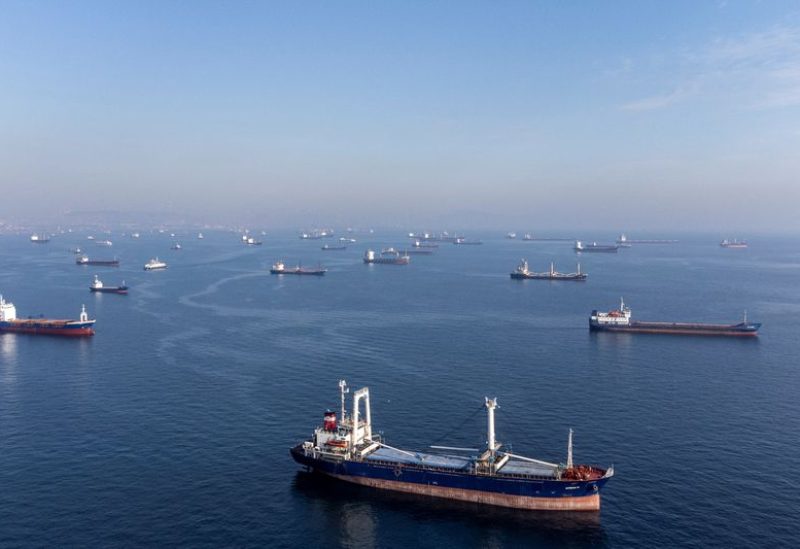
Commercial vessels including vessels which are part of Black Sea grain deal wait to pass the Bosphorus strait off the shores of Yenikapi during a misty morning in Istanbul, Turkey, October 31, 2022. REUTERS
Ukraine believes that a decision to prolong the agreement for at least a year will be made next week. The country wants the Black Sea grain export agreement to be expanded to include more ports and goods.
The agreement, which helped to alleviate a global food crisis by opening three important Ukrainian ports during Russia’s invasion, expires on November 19 and briefly seemed in jeopardy last month when Moscow temporarily paused its participation before rejoining.
“(We) are already very late (giving) clear information to the market about the extension (of the agreement),” Yuriy Vaskov, the deputy minister, told Reuters in an interview.
“We hope that no later than next week from our partners Turkey and the UN we will have an understanding and the whole market will also have a clear signal about the further functioning and continuation of the initiative,” he said.
The deal has allowed about 10.5 million tonnes of Ukrainian food, mainly grain, to be delivered to foreign markets since it was agreed in July under the mediation of Turkey and the United Nations.
Vaskov said Ukraine had offered an extension of at least one year to Turkey and UN, as well as a broadening of the deal to include the ports of the southern Mykolaiv region, which provided 35% of Ukrainian food exports before Russia’s invasion.
Kyiv has also demanded that mandatory inspections of ships that are involved in food transportation be “streamlined”, as Kyiv believes Russia is deliberately slowing down inspections to reduce the speed of exports, he said.
“We are already … demanding inspections be streamlined or inspections of departed (ships) be cancelled, because it makes no sense. Or else increase the number of inspection teams,” Vaskov said.
He stated that if Russia did not postpone the ship inspection, exports under the deal may total 15 million tonnes.
According to Vaskov, the Joint Center’s inspectors only perform 12 inspections daily, despite the fact that 25–30 inspections are required.
“When Turkey and the UN conducted their own inspections, they demonstrated that more than 40 inspections could be completed each day. Since Russia has returned, we now conduct a total of 12 inspections daily ” he explained.
“They don’t give an explanation (for the delays), but they also aren’t hiding the fact that they are doing this to make the work of the corridor more difficult,” said Vaskov.